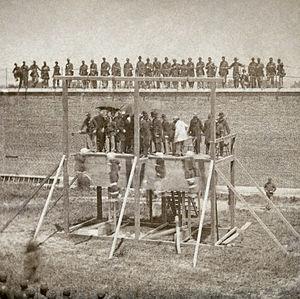There is something darkly comical about the news that Texas has almost run out of the drug it uses to execute prisoners. The deeply conservative southern state has said that its existing stock of pentobarbital will expire next month, but it is finding it impossible to procure further stocks. This creates the very real possibility that it might not be able to carry out the five further executions it intends to perform this year. It is not just Texas which is about to face this problem, though. The other states which continue the prehistoric practice of capital punishment are struggling with a shortage of the drug as supplies have been purchased for overseas use.
However, Texas is set to be most dramatically affected as it is the most ‘trigger happy’ executioner in the United States. In the autobiography of Chris Mullin (a Bennite-turned-centrist who was a junior Foreign Office minister at the height of the New Labour era) he described George Bush as a “mass murderer” because of the vast number of death warrants he signed as Governor of Texas. In Mullin’s eyes, there is no distinction between collaboration in executions and murder. Such is the strength of anti-execution sentiment in the Labour Party. This is not so true in the whole of Britain, where our tabloid newspapers frequently call on the government of the day to “bring back hanging” and the Thatcher government came within a few votes of passing such legislation in the 1980s. But in the debate over capital punishment, we rarely consider how pressure might be brought to bear on national and state governments to make the process more humane, and then to phase it out altogether. In the past six years, six states have banned the death penalty and more will follow provided abolitionists do not become complacent or divided.

Lethal injection is the most common, but hangings, gassings and firing squads are also used to kill criminals. Hangings and electrocution cause intense pain, gas chambers result in breathing difficulties that cause much suffering, and lethal injections are painless. I would not go as far as to say it is humane, though. What is humane does not involve killing people, though I believe that it is not the role of the justice system to impose physical pain on anybody, be that when they are being killed or imprisoned. I also believe that Texas not only consistently shows disregard of human life, but also of respect. For example, Texas has shockingly banned “last meals” in which the prisoner may have any meal they request before their execution. They did this in 2011 because one prisoner requested a particularly large and expensive dinner before refusing to eat it, and so a centuries-long convention in which a prisoner has a token of recognition as an individual human being has been trashed due to one mischievous inmate. Frankly, if I was going to be slaughtered tomorrow, I’d be inclined to cause what little inconvenience to my executioner that I could. Now, the last meal is the standard one served to those in the prison. Given that prison food is worse than hospital food, and Texas public sector procurement is even stingier than that of Britain, just eating the meal that results must be an ordeal in itself.
Hopefully Texas will run out of pentobarbital in a few weeks’ time. When it does, it should serve as a reminder to the government and people of this powerful state that it isn’t acceptable to take life in the name of justice in the 21st century.

